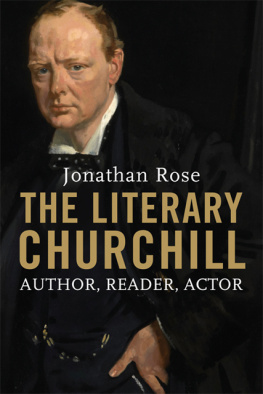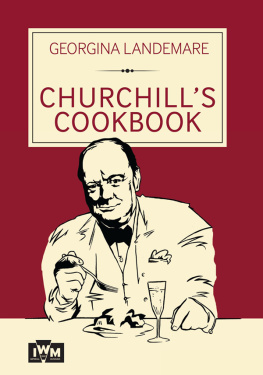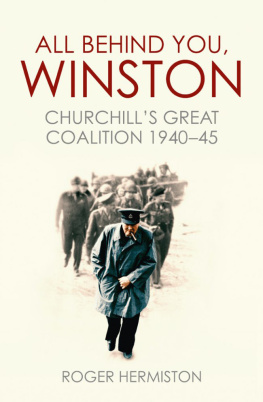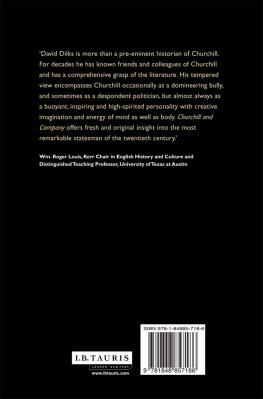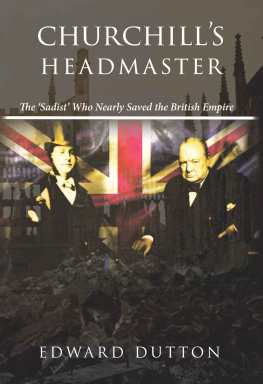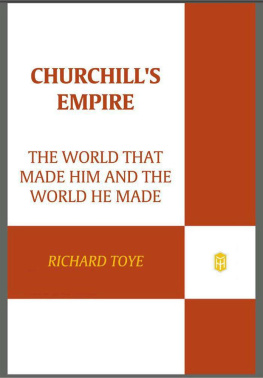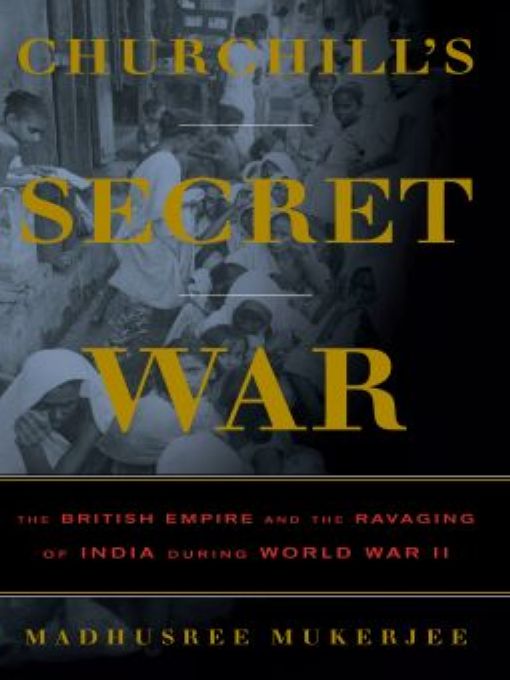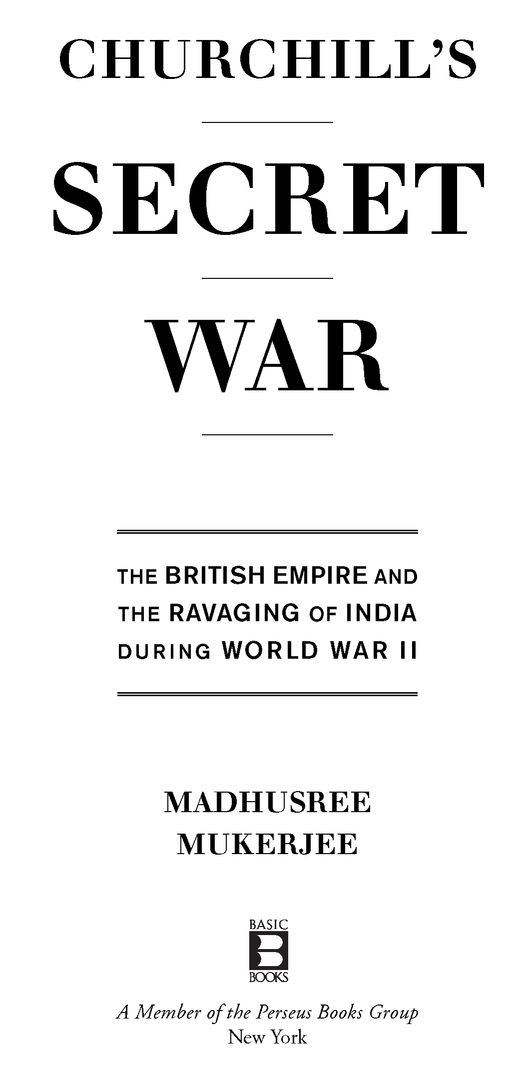Table of Contents
To those who fell
so that I could be born free
Prologue:
Our Title to India
No great portion of the world population was so effectively pro tected from the horrors and perils of the World War as were the peoples of Hindustan, Winston Churchill wrote in his 1950 history of the twentieth centurys most lethal conflict. They were carried through the struggle on the shoulders of our small Island. By Hindustan, or Land of the Hindus, Churchill meant India, which during the war was part of the British Empire. Britains wartime prime minister did not discuss in his six-volume account the 1943 famine in the eastern Indian province of Bengal, which killed 1.5 million people by the official estimate and 3 million by most others. One primary cause of the famine was the extent to which Churchill and his advisers chose to use the resources of India to wage war against Germany and Japan, causing scarcity and inflation within the colony. In 1947, two years after the war ended, India attained independencein part because the deprivation and anarchy of that fractious era had torn the fabric of its society and were erupting in violence that the United Kingdom could no longer subdue. Yet Churchills efforts to retain the colony by means of divide and rule also contributed to its partition, and to the eventual establishment of the mutually antagonistic nations India, Pakistan, and Bangladesh.
If the famine garnered little attention not just from Churchill but from twentieth-century historians, it also occasioned scant surprise, because Bengal had long been synonymous with hunger. Its modern incarnations, Bangladesh and the state of West Bengal in India, rank among the poorest regions of the world: Henry Kissinger, the former U.S. secretary of state, once described Bangladesh as a basket case. For two and a half centuries, the history of Bengalwhich is in miniature the history of India itselfhas featured relentless poverty. But before 1757, when General Robert Clive founded the British Empire by conquering Bengal, it was one of the richest parts of the world: the paradise of the earth, as Clive himself described it.
Just as British sovereignty over India ended with a famine in Bengal, it began with one. The famine of 1770 set the stage not only for the British Raj (as the imperial era in India would eventually be called) and the chain of famines that occurred throughout that reign but also, ultimately, for the emergence of impoverished and strife-torn South Asia.
IN LATE 1665, traveling eastward from the Mughal court in Delhi, physician Franois Bernier arrived in Bengal to find a vast, populous delta, its myriad channels lined with vibrant towns and cities interspersed with fields of rice, sugar, corn, vegetables, mustard, and sesame. He declared it the finest and most fruitful country in the world. Foreign merchants worked the wholesale markets, offering to buy produce in exchange for silver. They could not trade goods with the native businessmen, because Bengal was in need of virtually nothing. Its rice traveled to Sri Lanka (called Ceylon by the British) and the Maldives, its sugar to Arabia and Mesopotamia, and its silks to Europe; ships at its ports were loaded with such exports as wheat biscuits and salted meats, opium, varnish, wax, musk, spices, preserved fruits, and clarified butter. Bengals cottons, which supplied much of the world, were astonishing in variety and quality: twenty yards of a delicate muslin could be stuffed into a snuffbox. One can only imagine for what sublime piece of fabric another seventeenth-century visitor, Mirza Nathan, paid 4,000 rupees, given that a single rupee bought a score of chickens.
Bengali merchants, whose ships plied south to Sri Lanka and west to Gujarat, ate from gold plates and wore intricately wrought brocade clothing and gem-studded gold jewelry. Nor were the lowly in want of shelter or food. The three or four sorts of vegetables which, together with rice and butter, form the chief food of the common people, are purchased for the merest trifle, Bernier attested. Fish and meat were so plentiful, he added, that the regions many Portuguese immigrants virtually lived on pork. Bengale abounds with every necessary of life, he wrote, concluding with a wink: [t]he rich exuberance of the country, together with the beauty and amiable disposition of the native women, has given rise to a proverb in common use among the Portuguese, English and Dutch, that the Kingdom of Bengale has a hundred gates open for entrance, but not one for departure.
At the time, Bengal was a part of the larger Mughal Empire, whose emperor in distant Delhi ruled weakly through his representative, known as the diwan. The rulers could not always provide physical security: Portuguese pirates raided the coastal villages and carried off tens of thousands of slaves, and marauders from central India routinely descended on horseback to lay waste to the western districts. But because the revenues from Bengal were vital to Mughal power, the diwan attended to the provinces long-term prosperity.
In the early 1700s, a far-sighted diwan named Murshid Quli Khan reformed the administration. Sixteen powerful zamindars, or overseers, and about a thousand minor ones, ran the province under his watchful eye. The zamindars, who called themselves rajas if they were Hindu and nawabs if they were Muslim, maintained armies, collected taxes, and ran the courts, police, postal services, and often the schools. Villagers owned the lands they tended, and not even bankruptcy could evict them. Tax-exempt fields attached to temples and mosques aided the poor, whereas those who excavated ponds or made other improvements earned tax remissions. Agricultural taxesa fifth of the harvestcould be paid in kind, without resort to moneylenders. The state, recognizing farmers, spinners, weavers, and merchants as the source of its wealth, tried to protect them. The money in the hands of the people of the country is my wealth which I have consigned to their purses, explained Alivardi, a ruler in the mid-eighteenth century, cautioning his grandson Siraj-ud-daula to abstain from extortion. Let them grow rich and the state will grow rich also.
Soon, however, Bengal would descend into subjugation and ruin. Upon ascending to the Bengal throne, the impetuous Siraj-ud-daula confronted the British East India Company. In 1717 the Company had obtained from the Mughal emperor in Delhi the right to trade salt, opium, tobacco, and betel nut (a mild intoxicant) without paying customs duties, but many of its employees were claiming this right for their personal transactions and thereby defrauding the royal treasury. Moreover, in 1756 war broke out between England and France. The Company, fearing attack by French merchants, began to fortify its riverside trading post, Calcutta, and ignored the new diwans order to desist. Siraj-ud-daula pursued a rival into Calcutta and took English prisoners, many of whom died of suffocation in an airless room that would become notorious as the Black Hole of Calcutta. This episode, embellished by Europeans and propagated as proof of native savagery, would retroactively help to justify what came next: the conquest of Bengal and, ultimately, India. General Robert Clive came to the rescue of Calcutta and defeated Siraj-ud-daula at the Battle of Plassey on June 23, 1757.
Clives victory was aided by his conspiracy with Siraj-ud-daulas general, Mir Jafar, who became the new nawab. As arranged, Mir Jafar paid the East India Company 2.2 million and its officers and troops 1.2 million, of which Clive took a lions share. Two hundred barges carrying the first installment of the Companys booty set off from the capital city of Murshidabad on July 3, 1757, accompanied down the Ganga (or Ganges) River by the trumpeting of a British military band. It was a momentous occasion, for countless such tributes would thereafter flow from east to west. That day, another procession in Murshidabad displayed Siraj-ud-daulas body draped over the back of an elephant.



